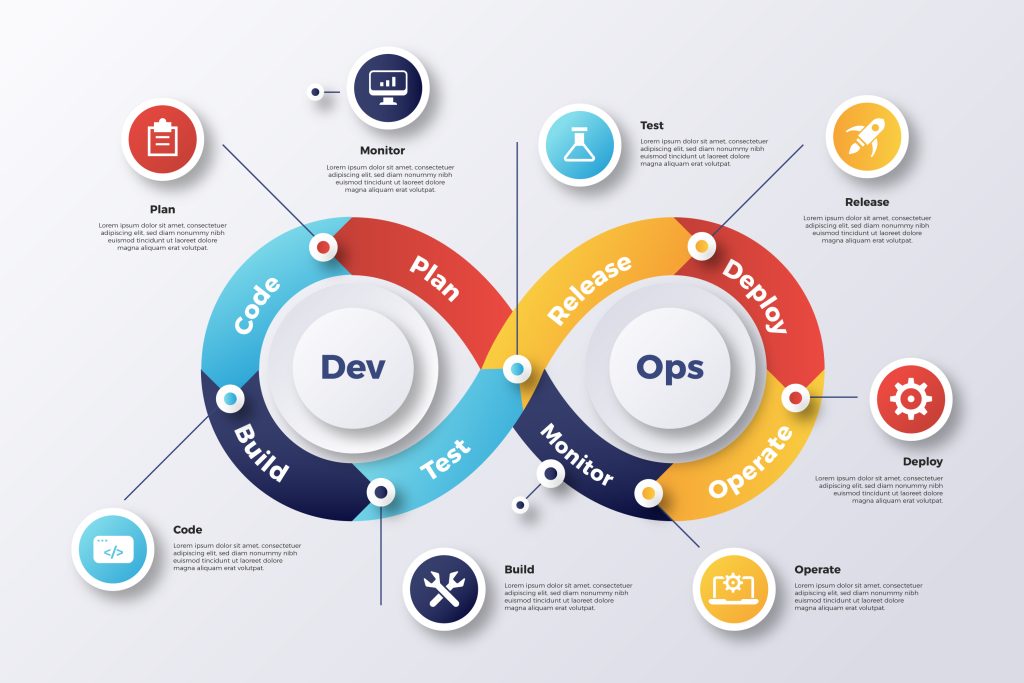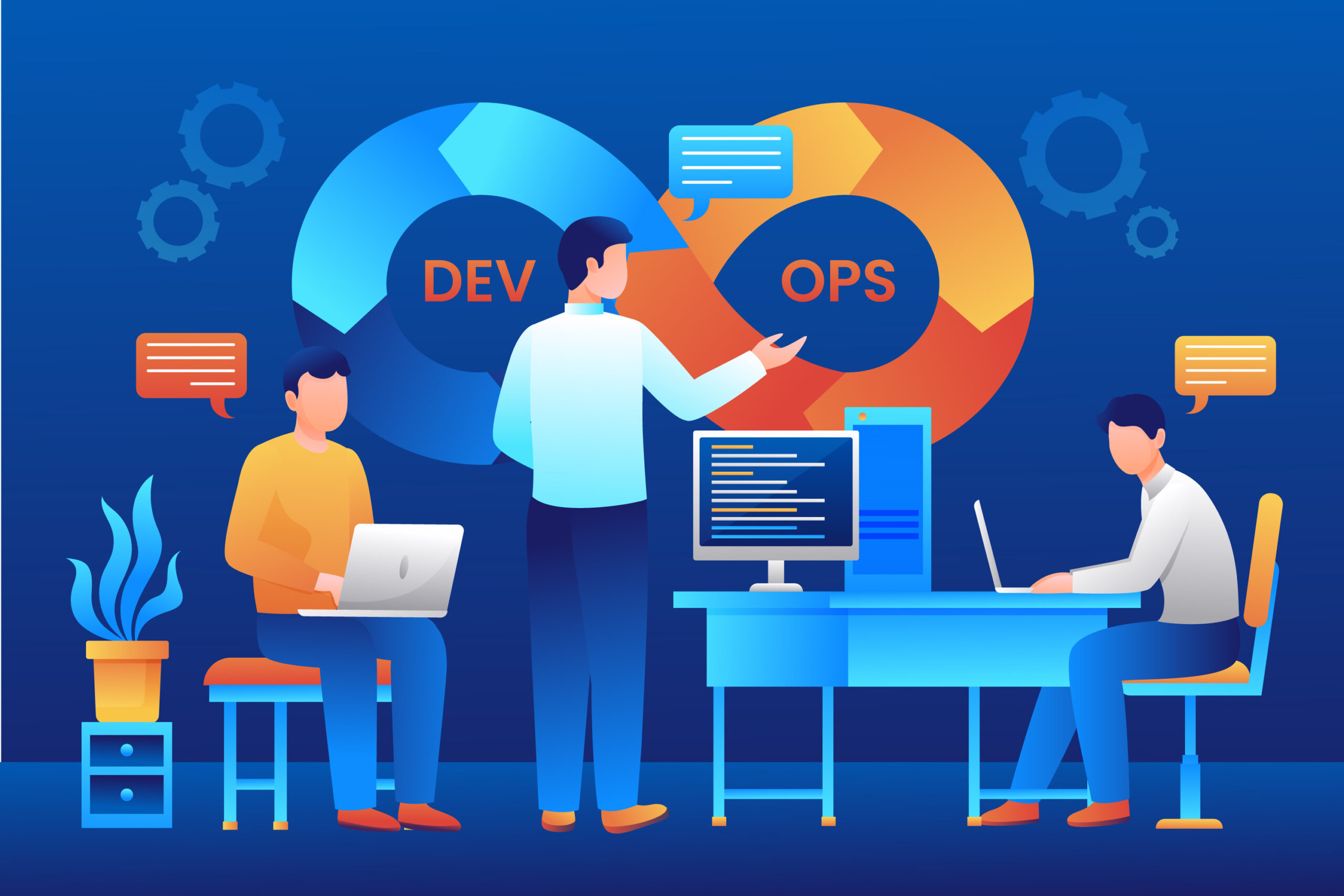How to Become a DevOps Engineer: A Comprehensive Guide

Introduction
The role of a DevOps engineer has become one of the most sought-after positions in the tech industry, driven by the increasing adoption of DevOps practices to streamline software development and operations. DevOps engineers bridge the gap between development and IT operations, enabling organizations to deliver high-quality software faster and more reliably. This article provides a detailed, step-by-step guide on how to become a DevOps engineer, covering essential skills, tools, certifications, and career strategies. With a focus on practical advice and real-world tools like Monday.com for DevOps workflows, this 3000-3500 word guide is designed for aspiring professionals looking to break into this dynamic field.
DevOps is not just a job title but a mindset that emphasizes collaboration, automation, and continuous improvement. As organizations across industries embrace digital transformation, the demand for skilled DevOps engineers continues to grow. According to a 2024 report by Indeed, DevOps engineer roles rank among the top-paying tech jobs, with average salaries exceeding $120,000 annually in the U.S. This guide will help you navigate the path to becoming a DevOps engineer, from foundational knowledge to advanced practices.
What is a DevOps Engineer?
A DevOps engineer is a professional who combines expertise in software development, IT operations, and automation to facilitate the DevOps lifecycle. They work to improve collaboration between development and operations teams, automate repetitive tasks, and ensure the reliability, scalability, and security of software systems. DevOps engineers are responsible for designing and maintaining continuous integration/continuous delivery (CI/CD) pipelines, managing cloud infrastructure, and monitoring application performance.

Key responsibilities include:
- Automating Processes: Building CI/CD pipelines to streamline code integration and deployment.
- Infrastructure Management: Using tools like Terraform or Ansible to provision and manage cloud resources.
- Monitoring and Optimization: Implementing monitoring solutions to track system performance and resolve issues.
- Collaboration: Working with developers, QA engineers, and security teams to align on goals.
- Security Integration: Incorporating security practices (DevSecOps) into the development lifecycle.
DevOps engineers need a blend of technical skills, problem-solving abilities, and soft skills to succeed in this role.
Why Pursue a Career as a DevOps Engineer?
Becoming a DevOps engineer offers numerous benefits:
Benefit Description
High Demand Organizations across industries need DevOps engineers to accelerate software
delivery.
Lucrative Salaries Competitive pay, with senior roles often exceeding $150,000 annually in major
markets.
Diverse Skill Set Opportunity to work with cutting-edge technologies like cloud, automation, and
AI.
Career Flexibility Roles in startups, enterprises, or freelance consulting provide varied opportunities.
Impactful Work Directly contribute to business success by improving software quality and speed.
The role also offers intellectual challenges and the chance to work in collaborative, cross-functional teams, making it ideal for those passionate about technology and innovation.
Step-by-Step Guide to Becoming a DevOps Engineer
Step 1: Understand the DevOps Philosophy
Before diving into technical skills, grasp the core principles of DevOps:
- Collaboration: Breaking down silos between teams for shared responsibility.
- Automation: Reducing manual tasks to improve efficiency.
- Continuous Improvement: Iteratively refining processes based on feedback.
- Customer Focus: Delivering value through frequent, reliable releases.
Read foundational books like The Phoenix Project by Gene Kim and The DevOps Handbook by Gene Kim, Jez Humble, Patrick Debois, and John Willis to understand the cultural and technical aspects of DevOps.

Step 2: Build a Strong Foundation in IT and Programming
A solid understanding of IT fundamentals and programming is essential. Start with:
- Operating Systems: Master Linux (e.g., Ubuntu, CentOS) as it’s widely used in DevOps. Learn commands for file management, process monitoring, and user permissions.
- Networking Basics: Understand TCP/IP, DNS, HTTP/HTTPS, and load balancing.
- Programming: Learn at least one programming language:
- Python: Popular for scripting and automation.
- Go: Used in tools like Docker and Kubernetes.
- Bash: Essential for shell scripting in Linux environments.
Action Plan:
- Take online courses on platforms like Coursera or Udemy (e.g., “Linux for Beginners” or “Python for DevOps”).
- Practice coding on platforms like LeetCode or HackerRank.
- Set up a Linux virtual machine using VirtualBox to experiment with commands.
Step 3: Learn Version Control Systems
Version control is critical for managing code and collaboration. Focus on:
- Git: The most widely used version control system.
- Platforms: GitHub, GitLab, or Bitbucket for hosting repositories.
Key Skills:
- Initialize repositories, commit changes, and manage branches.
- Resolve merge conflicts and use pull requests for code reviews.
- Understand Git workflows like GitFlow or trunk-based development.
Action Plan:
- Complete the free “Git and GitHub” course on Codecademy.
- Contribute to open-source projects on GitHub to gain practical experience.
Step 4: Master CI/CD Pipelines
Continuous integration and continuous delivery are core DevOps practices. Learn to:
- Set Up CI/CD Pipelines: Automate code integration, testing, and deployment.
- Use Tools:
- Jenkins: Open-source, widely used for CI/CD.
- GitHub Actions: Integrated with GitHub for seamless workflows.
- GitLab CI: Built-in CI/CD for GitLab repositories.
Action Plan:
- Build a simple CI/CD pipeline for a sample project (e.g., a Python Flask app).
- Explore tutorials on Jenkins or GitHub Actions (e.g., freeCodeCamp’s CI/CD courses).
- Experiment with automated testing frameworks like Selenium or JUnit.
Step 5: Dive into Cloud Computing
Cloud platforms are integral to modern DevOps. Focus on:
- Major Providers:
- AWS: The most popular cloud platform, offering services like EC2, S3, and Lambda.
- Azure: Strong enterprise integration.
- Google Cloud Platform (GCP): Known for AI and data services.
- Key Concepts: Virtual machines, containers, serverless computing, and load balancing.
Action Plan:
- Start with AWS’s free tier to experiment with services.
- Take the “AWS Cloud Practitioner Essentials” course.
- Earn a cloud certification (see Step 8).
Step 6: Learn Infrastructure as Code (IaC)
IaC allows you to manage infrastructure programmatically. Key tools include:
- Terraform: Platform-agnostic IaC tool for provisioning resources.
- Ansible: Configuration management for automating server setups.
- AWS CloudFormation: AWS-specific IaC tool.
Action Plan:
- Write a Terraform script to deploy a simple web server on AWS.
- Follow Ansible tutorials to automate server configurations.
- Explore HashiCorp’s free Terraform learning path.
Step 7: Master Containerization and Orchestration
Containers and orchestration are central to modern DevOps:
- Docker: Create and manage containers for consistent environments.
- Kubernetes: Orchestrate containerized applications for scalability.
Action Plan:
- Complete Docker’s official “Get Started” guide.
- Deploy a sample app using Kubernetes on a local cluster (e.g., Minikube).
- Take the “Kubernetes for Beginners” course on Udemy.
Step 8: Earn Relevant Certifications
Certifications validate your skills and enhance employability. Recommended certifications include:
| Certification | Provider | Focus |
| AWS Certified DevOps Engineer | AWS | Cloud-based DevOps practices |
| Microsoft Certified: DevOps Engineer Expert | Azure | Azure DevOps solutions |
| Google Cloud DevOps Engineer | GCP | GCP-based DevOps workflows |
| Docker Certified Associate | Docker | Containerization |
| Certified Kubernetes Administrator (CKA) | CNCF | Kubernetes orchestration |
Action Plan:
- Start with an entry-level cert like AWS Cloud Practitioner.
- Progress to a DevOps-specific cert after gaining experience.
- Use study resources like A Cloud Guru or Linux Academy.
Step 9: Develop Monitoring and Logging Skills
Monitoring ensures system reliability. Learn tools like:
- Prometheus: Open-source monitoring and alerting.
- Grafana: Visualization for monitoring data.
- ELK Stack: Elasticsearch, Logstash, and Kibana for log analysis.
Action Plan:
- Set up a Prometheus-Grafana stack to monitor a sample app.
- Explore ELK Stack tutorials for log aggregation.
- Learn to create dashboards for real-time insights.
Step 10: Build Soft Skills and Collaboration

DevOps engineers work in cross-functional teams, requiring strong soft skills:
- Communication: Clearly explain technical concepts to non-technical stakeholders.
- Problem-Solving: Troubleshoot complex issues in CI/CD pipelines or infrastructure.
- Teamwork: Collaborate with developers, QA, and security teams.
Action Plan:
- Practice explaining DevOps concepts in simple terms (e.g., to a friend).
- Join DevOps communities on Slack, Reddit, or LinkedIn to network.
- Use tools like Monday.com to manage team workflows (see below).
Step 11: Gain Practical Experience
Hands-on experience is crucial. Ways to gain it include:
- Personal Projects: Build a CI/CD pipeline for a web app and deploy it on AWS.
- Open-Source Contributions: Contribute to DevOps tools like Jenkins or Terraform.
- Internships/Freelancing: Apply for entry-level DevOps roles or freelance gigs.
Action Plan:
- Create a portfolio showcasing projects (e.g., a GitHub repo with CI/CD pipelines).
- Document projects in a blog to demonstrate expertise.
- Apply for junior DevOps or site reliability engineer (SRE) roles.
Step 12: Stay Updated and Network
DevOps evolves rapidly. Stay current by:
- Following blogs like DevOps.com or DZone.
- Attending conferences like DevOpsDays or AWS re:Invent.
- Joining meetups or online communities (e.g., DevOps subreddit).
Action Plan:
- Subscribe to DevOps newsletters.
- Connect with professionals on LinkedIn.
- Participate in hackathons to showcase skills.
The Role of Monday.com in DevOps
Monday.com, a versatile work management platform, supports DevOps teams by streamlining collaboration and workflow management. Key features include:
- Sprint Planning: Create Kanban boards to manage backlogs and track progress.
- Automation: Automate task assignments and notifications to reduce manual work.
- Integrations: Connect with GitHub, Jenkins, and Slack for seamless workflows.
- Dashboards: Visualize pipeline status and team performance in real-time.
Example Use Case: A DevOps team uses Monday.com to manage a CI/CD pipeline project. Developers track code commits, QA engineers monitor test results, and operations teams oversee deployments—all within a single platform. Integration with GitHub ensures automatic updates when code is pushed, keeping everyone aligned.
Action Plan:
- Sign up for Monday.com’s free trial to explore its DevOps templates.
- Experiment with integrating Monday.com with GitHub for a personal project.
Essential Skills for a DevOps Engineer
A successful DevOps engineer needs a mix of technical and soft skills:
Skill Category Skills
Technical Linux, Git, CI/CD, Docker, Kubernetes, Terraform, AWS, Python, monitoring tools
Soft Skills Communication, teamwork, problem-solving, adaptability
Methodologies Agile, Scrum, DevSecOps, GitOps
Tips:
- Prioritize skills based on job descriptions in your target market.
- Continuously practice through projects to stay sharp.
Common Challenges and How to Overcome Them
Aspiring DevOps engineers may face obstacles:
Challenge Solution
Overwhelming Toolset Focus on one tool per category (e.g., Jenkins for CI/CD, Terraform for IaC).
Lack of Experience Build projects and contribute to open-source to create a portfolio.
Keeping Up with Trends Follow blogs, join communities, and experiment with new tools.
Impostor Syndrome Celebrate small wins and seek mentorship from experienced engineers.
Career Path and Progression
The DevOps career path offers clear progression:
- Junior DevOps Engineer: Focus on CI/CD pipelines and basic automation.
- DevOps Engineer: Manage complex infrastructure and lead projects.
- Senior DevOps Engineer: Design enterprise-grade solutions and mentor juniors.
- DevOps Architect/SRE: Strategize DevOps adoption and ensure system reliability.
Tips:
- Seek roles in cloud-heavy companies to gain cutting-edge experience.
- Transition to SRE for a focus on reliability and scalability.
Real-World DevOps Engineer Roles
Case Study 1: Tech Startup
A junior DevOps engineer at a fintech startup automated a CI/CD pipeline using GitHub Actions and Docker, reducing deployment time by 40%. They used Monday.com to coordinate with developers, ensuring smooth sprint cycles.
Case Study 2: Enterprise
A senior DevOps engineer at a retail company migrated legacy systems to AWS using Terraform and Kubernetes. By implementing Prometheus for monitoring, they improved system uptime by 20%.

Future Trends in DevOps
Stay ahead by exploring emerging trends:
- AI-Driven DevOps: AI tools optimize pipelines and predict failures.
- GitOps: Manage infrastructure via Git for better traceability.
- Platform Engineering: Build internal platforms to simplify DevOps.
- Zero Trust Security: Integrate security into every DevOps stage.
Action Plan:
- Experiment with AI tools like Datadog’s AI features.
- Learn GitOps with tools like ArgoCD.
Conclusion
Becoming a DevOps engineer is a rewarding journey that combines technical expertise, collaboration, and continuous learning. By mastering skills like Linux, Git, CI/CD, cloud platforms, and containerization, and leveraging tools like Monday.com for team coordination, you can build a successful career in this high-demand field. Start with foundational knowledge, gain hands-on experience through projects, and pursue certifications to stand out. As DevOps evolves with AI, GitOps, and platform engineering, staying adaptable and networked will ensure long-term success.
Embark on your DevOps journey today—build a project, join a community, and take the first step toward a fulfilling career as a DevOps engineer.
You might also be interested in Understanding DevOps: Meaning, Practices, and Tools



